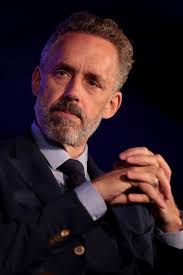The Impact of Jordan Peterson on Modern Discourse

Introduction
Jordan Peterson, a Canadian clinical psychologist and professor of psychology, has become a polarizing figure in contemporary cultural discourse. His lectures and writings challenge conventional views on psychology, philosophy, and political correctness, sparking debates across various platforms. As a public intellectual, Peterson’s relevance extends beyond academia, touching on issues like personal responsibility, meaning, and the role of tradition in society.
Background
Born on June 12, 1962, in Alberta, Canada, Peterson rose to prominence after the publication of his book ’12 Rules for Life: An Antidote to Chaos’ in 2018. The book became a bestseller, advocating for personal responsibility and the pursuit of meaning in a chaotic world. Peterson’s lectures often emphasize the psychological significance of myths, the importance of hierarchy, and the dangers of ideological possession.
Current Events and Influence
In recent years, Peterson has continued to dominate discussions surrounding issues of free speech, gender identity, and political ideology. Following his health struggles and recovery from a severe adverse reaction to medication, Peterson has written his new book, ‘Beyond Order: 12 More Rules for Life,’ which seeks to further elaborate on his philosophy amid the complexities of modern life. His return to public speaking has reignited interest in his views, particularly among younger audiences seeking guidance in a tumultuous world.
On social media platforms and at speaking engagements, Peterson’s fanbase remains strong, often engaging with his content to form communities centered around self-improvement and critical thinking. Critics, however, lament his views as deeply controversial, arguing that they perpetuate harmful stereotypes and fail to acknowledge systemic inequalities.
Conclusion
In a poignant era of increasing polarization, the influence of Jordan Peterson can not be understated. Whether viewed as a truth-teller or a provocateur, his perspective challenges many to reassess their beliefs and confront uncomfortable issues. As society grapples with complex topics such as identity, freedom of speech, and the role of tradition, Peterson’s contributions will likely continue to shape discussions and provoke responses well into the future. For readers, engaging with his ideas offers an opportunity to reflect on their own views and the broader implications for society.


